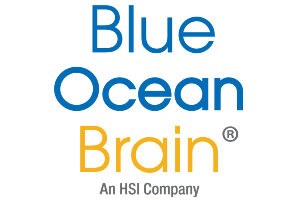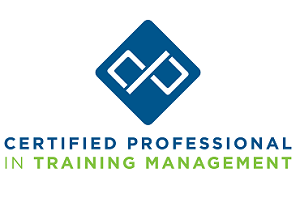About 10-20% of the world’s population is neurodiverse, meaning that their thinking patterns and cognitive processes vary from how most of the population thinks and processes information. Neurodiversity can refer to attention-deficit/hyperactivity disorder (ADHD), autism, dyslexia, giftedness and obsessive-compulsive disorder (OCD), and while some neurodivergent characteristics can pose a challenge for employers and employees in a traditional office setting, the World Economic Forum found a growing number of employers are actively recruiting neurodivergent workers for the value they bring to the workplace. Creative thinking, attention to detail and the ability to recognize patterns that others may overlook are just some of the qualities of neurodivergent people that have been recognized as a workplace asset.
Artificial intelligence (AI)-enabled tools can provide valuable support for neurodivergent professionals by offering features and functionalities tailored to their specific needs. These tools can help enhance productivity while improving communication and overall job performance for neurodivergent individuals, helping them acclimate to a work environment and bring their unique and valuable skill set to the team.
AI-Enabled Tools in the Workplace
AI-enabled tools aid efficiency, minimize errors and offer feedback. While these are beneficial for all professionals, neurodivergent workers may find them particularly helpful for completing tasks, checking their work and interacting with colleagues. AI-powered task management software can help neurodivergent learners stay organized, letting them set reminders and break down complex tasks into manageable steps, facilitating better time management and task completion.
AI chatbots and communication tools can assist neurodivergent individuals in navigating social interactions, helping them interpret non-verbal cues and improving communication skills. AI technology can also desensitize neurodivergent workers to their office environments by adjusting lighting, sound levels and other environmental factors based on individual preferences and sensory sensitivities.
Workplace Learning Opportunities
Learning opportunities in the workplace are essential for employees to develop new skills, stay updated with industry trends and enhance their overall performance, with AI playing a key role in how employees upskill and reskill. Several common learning opportunities in the workplace include on-the-job training, mentorship programs, formal workshops and seminars, eLearning courses and career development programs, such as continuing education. AI can recommend personalized learning trajectories aligned with both personal career goals and organizational objectives.
AI tools can adapt to individual learning preferences and pace, providing personalized learning experiences that cater to the unique needs of neurodivergent individuals while also delivering targeted support. By offering diverse learning opportunities, supporting employees in setting career goals, identifying development areas and creating personalized learning plans, organizations can foster a culture of continuous improvement and skill development among their employees.
AI tools can provide constructive, real-time feedback, coaching and guidance to improve job performance and promote a culture of continuous professional growth through collaborative learning. By analyzing large sets of educational data, AI can identify trends, patterns and areas for improvement in training programs. AI tools can create adaptive assessments that adjust difficulty based on user performance, providing more accurate evaluations of learning progress.
AI Features That Are Beneficial in the Workplace — or any — Learning Environment
AI tools transform on-the-job training by personalizing content to fit individual learning rates and providing immediate feedback. They create a scalable, one-on-one learning experience that caters to each employee’s unique requirements. Moreover, AI analytics enhance learning strategies with detailed insights into patterns of study.
AI can present information in multiple formats, catering to different sensory processing preferences, such as providing visual aids or offering auditory cues to facilitate better understanding and communication. Using interactive learning environments, AI can engage learners through simulations, games, and real-time feedback. AI can then customize learning paths and content based on a learner’s strengths, weaknesses and interests.
AI-powered learning platforms can be accessed anytime, anywhere, offering flexibility for learners. AI can provide adaptive and continuous assessments, identifying areas for improvement and offering targeted support.
Neurodivergent Professionals and AI: A Winning Combination
AI’s customizable learning experiences offer structure and engagement and play to a neurodivergent individual’s strengths while offsetting challenges. For those that thrive on routines and predictability, AI can assist in scheduling, reminders and task management.
Many neurodivergent individuals have a strong attention to detail and can demonstrate exceptional focus and concentration in certain tasks. Tools that adapt to different learning preferences while minimizing sensory overload, aid concentration and reduce stress. Recognizing and accommodating these needs can lead to a more inclusive and productive work environment for all employees.
For neurodivergent individuals with specialized skills, such as exceptional memory or heightened pattern recognition, AI systems can be tailored to accommodate individual preferences, providing a personalized experience that suits their specific needs and sensitivities.
Finally, AI interactions are free from social judgment and stigma, which can be particularly beneficial for those who struggle with social cues and interpersonal communication.
Neurodivergent employees can achieve greater workplace efficiency with AI by focusing on their unique strengths. AI automates mundane tasks and simplifies interfaces to lessen cognitive load. It also offers alternative communication methods for easier interaction and aids in task organization and priority management, leading to higher productivity and job satisfaction. By leveraging AI-enabled tools, employers can create inclusive work environments that empower neurodivergent individuals to thrive and contribute effectively in the workplace.




